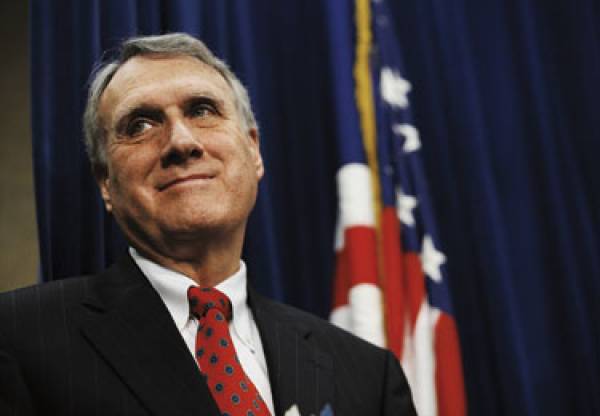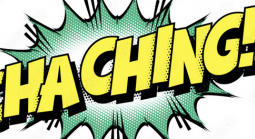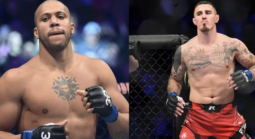Annie Duke: Jon Kyl Could Have Become Attorney General

In Part Two of Gambling911.com Senior Correspondent Jenny Woo's sit down interview with Annie Duke, the poker pro reveals why she feels it was so important for the industry to elect Barack Obama into office and her active role in getting online poker fully legalized.
Ms. Duke is the spokesperson for UltimateBet.com
You can read Part One of this interview here
JENNY: It seems like you have so much going on that I don't see how you have time for anything else. Especially tournaments.
ANNIE: Well to be fair - I was supposed to be on "Poker After Dark" at the beginning of November. Unfortunately, I had to cancel because I was tied up with something else. I do have some of that happen, but I think that in the end you have to balance out what's important in your life. And that's from making sure that your spending and really raising your own children, which obviously is going to take the most priority for me. That's my biggest priority. It's also not just about going out there and playing tournaments. It's about if you have the life that you have that's really amazing, it's okay to take some time away from things you want to do in order to make sure that others have close to the opportunities you have. It's hard to sit there and say, "I'm not going to this because I want to play in this tournament and it will conflict." In the case of Africa, you're talking about people who worry on how to get clean water.
I do try to balance it out. I think my biggest fault at this point is that I do actually let the poker go probably a little too much. When I scale the things that are important it's just hard for me to think that the charity stuff isn't more important then making sure that I get to a tournament. That's probably bad because the more tournaments that I show up at the more effective I am for the charity. So I do probably need to find a better balance there.
JENNY: You had the opportunity to speak before the Judiciary Committee on behalf of the Poker Players Alliance and Internet Gaming (http://www.youtube.com/watch?v=twNtjEhNQTE). How was that experience for you and would you do it again if asked?
ANNIE: I would do it again in a heartbeat. Although it's a very interesting thing because - up until the moment that I was asked to do that - I would have never in my life had listed it as one of the things that I wanted to do in my life. That would have not of been on the list cause it never really occurred to me to go an testify in front of Congress. I think there are people that it would be a big dream for. When I was asked, I thought, "Oh my God, this is really cool." Then I went and did it. It was really amazing!
JENNY: On your blog you had mentioned that you had to actually scale down your speech for it to fit in the allowed time frame that was given to you.
ANNIE: Yes, because we only had five minutes. But the testimony that we submitted was longer. So they did actually get that.
It was really cool. I got to debate Goodlatte during the Q and A period. That was a really amazing experience because Goodlatte was instrumental in the UIGEA and getting it passed. To be able to actually debate him on that issue was really gratifying and I really felt like I won that debate. Essentially what it comes down to is that it's a very anti-constitutional argument. There's two pieces to it - piece number one is against their morals and that's ridiculous because the moral arguments aren't suppose to come into play. There are supposed to be arguments on if you're doing direct harm to somebody. The thing is that people have different morality and some people certainly think that gambling is immoral but I think the majority of people don't. Just because there's a small minority that feels like gambling is immoral doesn't mean that that should be legislated. That's number one. I mean I can feel you but if I'm doing cocaine, I'm doing direct harm to people. Whether you think that's an immoral activity or not, I can show that I'm doing direct harm. Interestingly enough, the reason why adult porn is okay but child porn is not is because it's not a morality issue that's going on there. Whether you think that pornography in general is a moral or immoral activity is irrelevant. In the case of child pornography you're doing direct harm. But in the case of adult pornography you're talking about consenting adults and you're not doing direct harm to anybody. This kind of thing about direct harm is extremely important so the fact that they're essentially trying to make it a moral argument really doesn't hold a lot of water in the first place.
The other thing is - this is something Jim Leach (who authored the UIGEA) said to me when I debated him on NPR (National Public Radio) - he essentially said. "We want to protect our citizens from their own bad decisions." Obviously there are people who make bad decisions toward gambling - I don't think anybody would deny that, there are clearly people who make very bad decisions towards gambling. There are people who make very bad decisions toward McDonalds and that's where the argument falls apart. You can't legislate in a way to protect people from all possible bad decisions. For one thing we would have to shut the stock market down, you'd definitely have to shut down all fast foods, and in reality you'd really have to put governmental limits on the amount people can shop because there are plenty of people out there going broke from shopping addiction. That's the problem, what the Constitution says - and it's pretty clear on this issue - is that you legislate against things that cause harm, direct harm. Not indirect harm because people eating at McDonalds cause indirect harm to me as an individual because it causes my health insurance costs to go up. You can't talk about indirect harm it has to be direct harm - one individual harming another individual. We're very clear on these civil liberty issues - when we have a choice, we're suppose to stay out of people's business and people's decisions and allow them to make their own decisions; you can't talk about things being moral or immoral; you can't talk about protecting people from their own bad decisions because in reality they're only hurting themselves.
By the way, if you're going to have that kind of argument I would have to imagine that you'd outlaw alcohol long before you would outlaw gambling. There's a much better argument for direct harm in the case of alcohol because people do get into cars and drive drunk. So if you're going to start making those kinds of arguments I would have to think you'd be going after alcohol first which of course nobody will ever do. Aside from the fact that the alcohol abuse rate among people who use alcohol is ten times greater than the gambling abuse rate among people who engage in gambling as an activity. That's really where the problem is, is that the people who are pushing this through are trying to push through their own moral agenda.
What's pretty amazing to me - particularly in the case about people talking about protecting the citizens from their own bad decisions - is we're talking about Republicans here. Republicans are supposed to be very anti "nanny state" - they're supposed to be for smaller government. Every time that you add in a new regulation, you're increasing the size of government; it's pretty shocking to me that they're talking about - we need to pass statutes that protect people from their own decisions because that's a big government thing to say. That's a "nanny state" thing to say. It's amazing to me that it's Republicans who are actually saying that because that seems so anti Republican; which is exactly why in my testimony I quoted Ronald Reagan. Ronald Reagan was actually on our side with the things that he said in the past that clearly where on the side of poker and not having things like the UIGEA. Obviously, he's an iconic Republican.
I'm not surfing the net looking at internet porn. It's not something that I enjoy doing and it's not something I want to do. However, other people should be aloud to do that. I'm not trading on E*TRADE. It's not something I do but I think other people should be allowed to do that. I don't smoke cigarettes, but other people should be allowed to do it as long as they're doing it where I don't have to breathe in the smoke. I don't happen to drink - I don't really enjoy it very much - but if you want a drink then please go ahead just please don't get behind the wheel of a car.
JENNY: We had a great victory this election year with Obama becoming the 44th President of the United States. What positive changes do you see him making for the U.S? And do you see his election as a positive thing for poker?
ANNIE: I think his election can only be a positive thing. In the sense that it's a positive free roll meaning that I don't think things could get worse. Is poker going to be high on his agenda? I don't know, I mean the economy is in the crapper. It seems to me that there are a lot of things that he's going to have to focus on first but one would hope that he's going to be friendlier toward the cause. I was very afraid in particular of John McCain getting elected because - and this is a very specific point - had he been elected, the most likely candidate for attorney general would have been Jon Kyle. Remember, McCain is from Arizona and that he's a Senator from Arizona and Kyle is from Arizona. Kyle was one of the first casualties of the Poker Players Alliance. Obviously Kyle was instrumental in the "midnight attachment" of UIGEA to the back of the Port Security Act; this rule is very much his baby and he's very anti gambling. Kyle and McCain are buddies from Arizona. McCain was very clear that that was going to be his choice for attorney general. Whatever happens from here on out - the fact that we don't have Jon Kyle as attorney general is all good. Had we had Kyle as attorney general, I literally might have moved out of the country because it would have been disastrous for internet poker. They would have started going after people. I don't think there's any doubt had any of this been challenged in the Supreme Court that poker would win but who the hell wants to go through that.
JENNY: Do you think your psychology background ever gave you an edge when playing poker?
ANNIE: Interestingly enough, the psychology I was doing wasn't clinical psychology in terms of studying people's problems. So no, but the kind of psychology I was doing did help me in two really important ways. One was that because it was experimental psychology. I was very in depth into statistics before I started playing poker. Which meant that all the probability stuff became very easy for me because I had already been working in that for five years. The other thing is that clinical psychology deals quite a bit in decision making. Which is actually one of the reasons why I became so interested in "Decision Education Foundation." Really understanding decisions and what kind of decision making thoughts and errors that people make all the time is actually really important in understanding on how people are going to behave at the poker table. Those two things were really important to me. So the answer is yes, but not in the way people think. But it was extremely helpful.
JENNY: You're a mother of four - Do you see a future poker star in any of them?
ANNIE: To tell you the truth, not at the moment. Probably because I'm very reticent about really teaching any of them poker. They'll ask me about it and I'll say, "yeah sure I'll teach you" and then I don't really get around in doing it. Honestly, it's absolutely not because I don't think it's a good skill to have - I really do think it's a great skill to have. But in the case of my family - my worst nightmare would be that I would spend my whole day having poker conversations with people. My worst nightmare would be to sit at the dinner table and have my son telling me about a bad beat. (Haha) So I just kind of want to keep my business life and my personal life as separate as I possibly can. I'm actually a relatively unusual person in poker having never once in my life dated a poker player and it's because of the same reason; I don't want to be lying in bed and sharing bad beat stories. Now that's not to say that the people I've had long term relationships with haven't' learned how to play poker; they have. But I've never dated a poker player. I have no doubt that I'll eventually get around to teaching my children. My oldest is more the appropriate age group. I think when my 10 year old hits his teens he's going to be bugging me about wanting to sit, watch me play and learn what I'm doing and that'll be fine.
Watch for Part Three of my interview with Annie Duke tomorrow where she discusses the UltimateBet cheating scandal.
----
Jenny Woo, Gambling911.com Senior Correspondent













